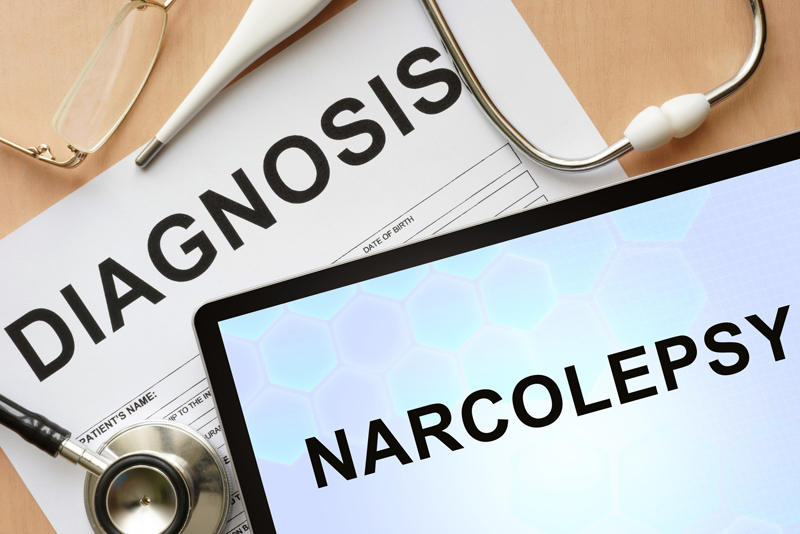Narcolepsy is defined as a chronic neurological disorder that causes persistent sleepiness, sleep paralysis, hallucinations, and cataplexy. Sudden episodes of deep sleep can occur often even at inappropriate times, like while talking, eating or driving. Although sleep episodes can happen at any time, they may be more frequent during periods of inactivity or monotonous, repetitive activity.
Those with this condition feel very sleepy during the day and may involuntarily fall asleep even during normal activities. This sleep disorder occurs equally in men and women. To treat the condition, medications are often combined with behavioral support. A sleep specialist or a primary care physician treating the condition can rely on medical coding companies to get the correct codes reported on their medical claims.
Related Content
Key symptoms of narcolepsy include
- Excessive daytime sleepiness
- Disrupted sleep
- Cataplexy – sudden, temporary loss of muscle tone
- Sleep paralysis or temporary inability to move while falling asleep
- Hypnagogic hallucinations or dreamlike images that are seen during the awake state
Narcolepsy is of two types. In Type 1 narcolepsy, the patient will be unable to control muscles (cataplexy), as this comes with a sudden loss of muscle tone that causes weakness and Type 2 refers to narcolepsy without cataplexy. Narcolepsy without cataplexy is caused by less severe injury to the hypocretin neurons, resulting in fewer and less severe symptoms.
What Causes Sudden Sleep Episodes?
Several reports have highlighted that narcolepsy with cataplexy is caused by a lack of hypocretins. Hypocretins are brain chemicals that help maintain alertness and prevent rapid-eye-movement (REM) sleep from occurring at the wrong times.
According to the report from Harvard Medical School –
- In individuals whose sleep is well regulated and without narcolepsy, hypocretins are released during wakefulness and it helps to increase activity in target neurons that promote wakefulness and suppress REM sleep.
- In people who have narcolepsy with cataplexy, most of the hypocretin-producing neurons die off. The consequent lack of hypocretins results in lasting sleepiness and poor control of REM sleep.
Hypocretin acts on the alerting systems in the brain, keeping us awake and regulating sleep wake cycles. Without hypocretin, the person has trouble staying awake, and also experiences disruptions in the normal sleep-wake cycles. This sleeping disorder can also be the result of other key factors including inherited genetic fault, autoimmune disorders, brain injuries and age and family history of the patient.
Diagnosis and Treatment
To diagnose this condition, sleep medicine doctors may perform a physical examination, consider medical history, hypocretin level measurement or even conduct sleep studies like Polysomnogram (PSG) or multiple sleep latency test (MSLT).
Though there is no cure for narcolepsy, symptoms can be improved using medications and behavioral treatments, helping patients to lead normal, productive lives. Medications recommended include stimulants to treat sleepiness, antidepressants to treat problems with REM sleep, sodium oxybate (Xyrem) to treat cataplexy or Pitolisant (Wakix) or Solriamfetol (Sunosi) to help you stay awake for longer periods.
Medical Codes to Report Narcolepsy Sleeping Disorder
ICD-10 Codes
- G47.4 Narcolepsy and cataplexy
- G47.41 Narcolepsy
- G47.411 Narcolepsy with cataplexy
- G47.419 Narcolepsy without cataplexy
- G47.42 Narcolepsy in conditions classified elsewhere
-
- G47.421 Narcolepsy in conditions classified elsewhere, with cataplexy
- G47.429 Narcolepsy in conditions classified elsewhere, without cataplexy
- G47.41 Narcolepsy
CPT Codes
- 95782 – Polysomnography; younger than 6 years, sleep staging with 4 or more additional parameters of sleep, attended by a technologist
- 95783 – Polysomnography; younger than 6 years, sleep staging with 4 or more additional parameters of sleep, with initiation of Continuous Positive Airway Pressure therapy or bi-level ventilation, attended by a technologist
- 95800 – Sleep study, unattended, simultaneous recording; heart rate, oxygen saturation, respiratory analysis (e.g., by airflow or peripheral arterial tone), and sleep time
- 95801 – Sleep study, unattended, simultaneous recording; minimum of heart rate, oxygen saturation, and respiratory analysis (e.g., by airflow or peripheral arterial tone)
- 95805 – Multiple Sleep Latency or Maintenance Of Wakefulness Testing, recording, analysis and interpretation of physiological measurements of sleep during multiple trials to assess sleepiness
- 95806 – Sleep study, unattended, simultaneous recording of, heart rate, oxygen saturation, respiratory airflow, and respiratory effort (e.g., thoraco abdominal movement)
- 95807 – Sleep study, simultaneous recording of ventilation, respiratory effort, ECG or heart rate, and oxygen saturation, attended by a technologist
- 95808 – Polysomnography; sleep staging with 1-3 additional parameters of sleep, attended by a technologist
- 95810 – Polysomnography; sleep staging with 4 or more additional parameters of sleep, attended by a technologist
- 95811 – Polysomnography; sleep staging with 4 or more additional parameters of sleep, with initiation of Continuous Positive Airway Pressure therapy or bi-level ventilation, attended by a technologist
HCPCS Codes
- G0398 – Home Sleep Study Test (HST) with type II portable monitor, unattended; minimum of 7 channels: EEG, EOG, EMG, ECG/heart rate, airflow, respiratory effort and oxygen saturation
- G0399 – Home Sleep Test (HST) with type III portable monitor, unattended; minimum of 4 channels: 2 respiratory movement/airflow, 1 ECG/heart rate and 1 oxygen saturation
- G0400 – Home Sleep Test (HST) with type IV portable monitor, unattended; minimum of 3 channels
As allergy and sleep medicine medical coding is complex and time-consuming, doctors can take support from experienced medical coding service providers.




